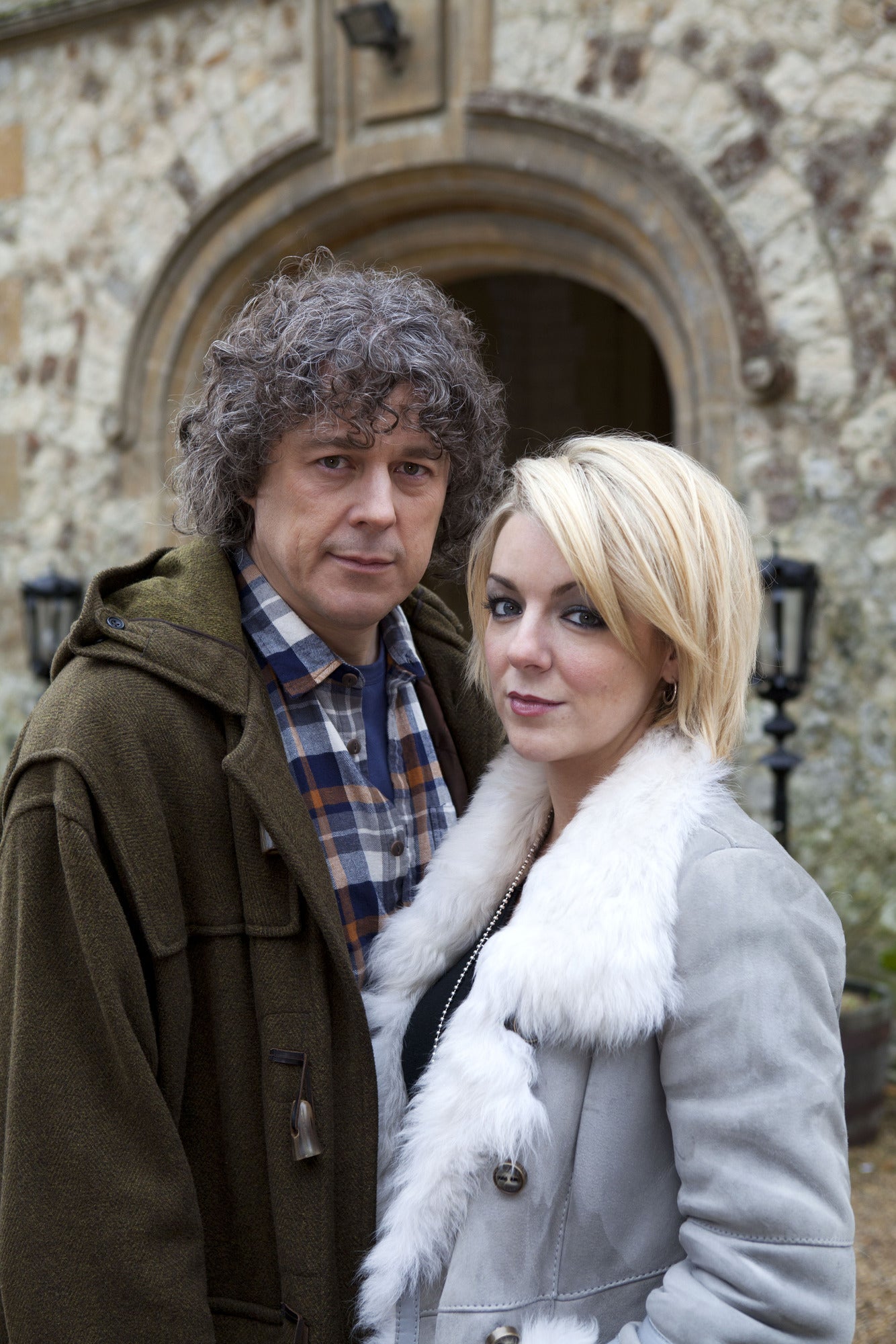TV review: Jonathan Creek (BBC1) was a melange of highly watchable gobbledegook
The Men Who Built America, History

"He's back in the saddle," proclaimed a colleague in Jonathan Creek, as if Alan Davies's veteran sleuth were a strutting young turk and not a grumpy mid-lifer in a plaid shirt. He is back, but the interregnum while he'd been off air (of nearly three years) had led to some disconcerting changes. We found him in a glass-encased office – getting ahead in advertising – in a city-slicker suit. His slide back to the sleuthy side of life didn't take long though: one whiff of mystery after a visit from the mischievous Sheridan Smith and he was left rummaging in his wardrobe for that shaggy old duffle coat.
A madcap plot that combined the supernatural, horror and detective genres to make a mélange of highly watchable gobbledegook followed. Who cares about making sense of the plot anyway when you have a wondrously tongue-in-cheek script by David Renwick, (who wrote for Kenny Everett and Spike Milligan, among others) and such glittering comedy stars as Nigel Planer and Rik Mayall alongside Joanna Lumley, all playing it straight, bar the odd, camp smirk.
Lumley played the sultry wife with a haunted past (affix supernatural genre here) while her husband, Nigel Planer, a big-brained TV intellectual, had his head cut off (insert horror here). Mayall was the most winning in his role as the Ironside-style detective (retro TV drama goes here), leading the investigation from his wheelchair and only giving way to flashes of archness when the situation absolutely demanded it. Ever increasing silliness did hit the limit in the final 15 minutes when a conspiracy subplot was thrown in and apple juice saved the day. What's more, none of the mysteries quite joined up at the seams, but perhaps the preposterousness was the point.
Clever satire came even with smaller characters, such as the documentary-making adopted daughter, Fariba, who spoke in mystic mumbo-jumbo, and her boyfriend, a Mellors-like farm-hand straight out of Lady Chatterley's Lover, who quoted DH Lawrence while rolling around atop haystacks.
It has always been hard to pin down the nature of this beast – whether it is primarily a spoofy comedy of the whodunit genre, or a funny whodunit. Perhaps it is the generic splicing that has led to its success. The freshness of this comeback was surprising, given that the show first aired 16 years ago and should surely be as old and tired as Jonathan Creek's duffle coat by now.
The Men Who Built America wasn't half as funny, but then again, one had to be serious, and seriously ruthless, to be as big a capitalist pioneer as Cornelius Vanderbilt, whose life story, from down-at-heel kid to the richest man in America, was the subject of the first part of this series. The signature marks of far wider purse strings than a bog-standard BBC documentary were all over this high-octane hour, with its filmic reconstructions, its rousing soundtrack and its access to high-ranking talking heads, including Alan Greenspan and Ted Turner, who spoke of the capitalist drive to succeed that Vanderbilt so embodied.
There was something of the rock-umentary about the beginning, which spoke of the six subjects of this series – Vanderbilt, Rockefeller, Carnegie, Astor, Ford and J P Morgan – in hyperbolic terms. They were "entrepreneurial rock stars" who propelled America to greatness, the narrator said. Vanderbilt began with a single boat bought with a $100 loan and went on to become first a shipping magnate, then dominate the railroads before turning his interests to oil. Ever restless to expand his empire, he was prepared to use cowboy tactics to beat his rivals. While this documentary was frank about the cut-throat instincts that men like Vanderbilt personified, its statesmen-like positioning of them and their legacy seemed at odds with our current economic crisis, which might expose the end-point for this brand of American capitalism to be a force for bad, not good.
Join our commenting forum
Join thought-provoking conversations, follow other Independent readers and see their replies
Comments